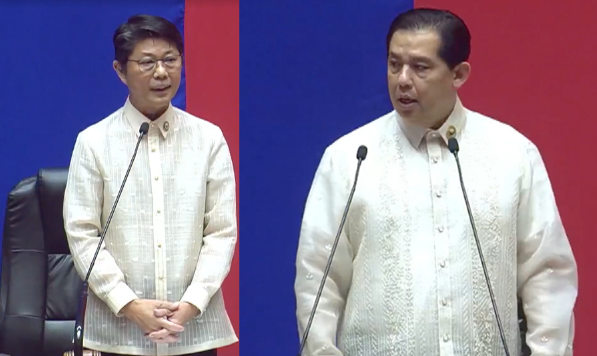By By David Lerman CQ-Roll Call,David Lerman Cq-Roll Call
Copyright keenesentinel

WASHINGTON — The U.S. Senate shot down dueling versions of a short-term funding patch Friday before leaving town for a weeklong recess without a plan in place to avoid a partial government shutdown next month.
With lawmakers unable to resolve a partisan standoff over extending expiring health insurance subsidies, Senate leaders agreed to engage in a bit of political theater, allowing each party to get a vote on its own version of a stopgap spending measure, knowing neither would have enough support to pass.
Party leaders agreed to set a 60-vote threshold for each, and the GOP-controlled chamber is divided 53-47.
Republican leaders got a bit of surprise bad news when Sen. Lisa Murkowski, R-Alaska, voted against the Republican-authored version, which passed the House earlier Friday. Murkowski, who has proposed extending the higher health care subsidies for two years, joined Sen. Rand Paul of Kentucky as the only two GOP senators to vote “no.”
Republicans actually got fewer votes for their version, which fell short on a 44-48 vote, despite backing from Sen. John Fetterman, D-Pa. The vote on Democrats’ more expansive stopgap bill, which would permanently extend the expiring health care tax credits, was 47-45; no one on either side crossed the aisle on that vote.
Multiple absences on the GOP side Friday didn’t help their cause, though Republicans didn’t expect to pass their bill in the first place and gave senators a pass to be elsewhere if needed.
The defeat of both bills inched the government closer to a partial shutdown once current funding runs out on Sept. 30.
Senate Majority Leader John Thune, R-S.D., said he plans to reconsider the vote when the Senate comes back after recess. Unless senators return early from the Rosh Hashana recess next week — an option Senate leaders did not rule out Friday — lawmakers would have only two scheduled work days remaining to pass a funding extension before the deadline.
“I think it’s unlikely we’ll be in next week but, obviously, never say never,” Thune said.
House GOP leaders, meanwhile, on Friday canceled their scheduled Sept. 29-30 votes, though they reserved the right to call members back to Washington if the Senate hasn’t passed a stopgap bill yet.
The House-passed measure would extend current spending levels through Nov. 21 to keep the government open. But it would not include an extension for the enhanced tax credits that defray the cost of health coverage purchased on government-run exchanges, which are set to expire at the end of this year.
Democrats included a permanent extension of those subsidies — at an estimated cost of $350 billion over 10 years — in their stopgap bill, which would extend current spending through Oct. 31.
The defeats of both versions set the stage for a tense standoff that could drag on straight through a potential shutdown unless leaders can reach a bipartisan deal. But so far, neither side was ready to blink.
Thune told reporters repeatedly there was no room for negotiating costly health care provisions in a short-term funding extension.
“It looks to me like it’s either this or a shutdown,” he said of the Republican bill.
But the Congressional Budget Office and other independent analysts say by then it will be too late to prevent steep premium increases for millions of individuals with coverage purchased on federal and state exchanges, with insurers already setting rates and open enrollment starting Nov. 1.
“When Republicans say they don’t want to talk about health care — yet — what they are saying is they don’t want to talk about it until a lot of the damage has been done,” Senate Appropriations ranking Democrat Patty Murray of Washington said during debate Friday. “Because premium hikes are already being announced, and people will receive letters in the mail with their new rates next month.”
Senate Appropriations Chair Susan Collins, R-Maine, countered that there was still time to negotiate a compromise on health subsidies because they don’t expire until Dec. 31. “So we do need to act, but that is a significant policy change and the deadline is not Sept. 30,” she said on the floor.



